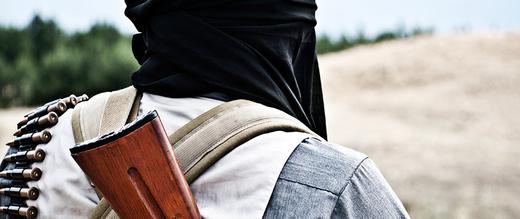The views expressed in our content reflect individual perspectives and do not represent the authoritative views of the Baha'i Faith.
Verily your light shall illumine the whole world, your spirituality shall affect the heart of things. You shall in truth become the lighted torches of the globe. Fear not, neither be dismayed, for your light shall penetrate the densest darkness. – Abdu’l-Baha, Paris Talks, p. 167.
“Fear not,” the Baha’i teachings say.
But after the most recent spate of terrorist attacks in Paris, Beirut, Africa, California and on the Egyptian jetliner, my wife and I realized that we have a French Baha’i friend who lives in Paris, family members who live in Beirut, several friends in Africa and in San Bernardino and a Baha’i couple who live in Russia—all of whom could have been hurt or killed in the violence. We worried, fearing for their safety, before we found out they all escaped any injury or involvement.
That’s one of the great things about being a Baha’i, by the way—knowing people from every part of the world, and feeling part of one human family. But it also means, when tragedy and disaster strike just about anywhere, that you worry about your friends there. To Baha’is, the world seems much closer.
Our friend in Paris lives very close to the epicenter of the terrorist violence—in the 10th Arrondissement, the Paris neighborhood which borders the area where many of the recent bombings and shootings took place. Afraid for his safety, we emailed him immediately. We breathed a sigh of relief when he replied, saying he was safe.
Then we realized that the fear we felt, the powerful concern we had for his survival and the survival of our friends and family in all of those places, was exactly what the terrorists wanted us to feel. Terror feeds on our fear of physical death, and ultimately springs from the deaths of others. “They (the terrorists) told us that the Syrian bombings are what brought them here,” said one hostage who made it out alive from Paris’ Bataclan concert hall, “To show us Westerners what the airstrikes are like over there.” Death, as we know, begets death.
Just a short walk from our friend’s Paris home, at the crossroads of the Third, 10th and 11th Arrondissements, you can see one the greatest monuments of Paris and of Western civilization, the Place de la République. Its imposing bronze statue, more than a hundred feet high, shows Marianne, the symbol of the French Republic itself, on a majestic pedestal, holding an olive branch in her right hand, and resting her left hand on a tablet engraved with “Droits de l’Homme” (“Human Rights”). Clustered around Marianne, three smaller statues represent the French national values of Liberty, Equality and Fraternity. This monument doesn’t just symbolize France—it symbolizes all free people.
Maybe that’s why the Place de la République served as the city’s gathering place after the Charlie Hebdo terrorist attacks in January, 2015. France’s Interior Ministry estimated that 1.6 million people gathered there, in the largest demonstration in modern French history, not only to mourn the deaths of journalists and cartoonists, but to express their solidarity in the face of terror. Once again, after the recent attacks and the deaths of 130 innocent people in Paris, the Place de la République filled up with a huge number of Parisians, who lit candles, sung songs, mourned the deaths of friends and family, and expressed their united opposition to murder, extremism and terrorism.
In the photographs I noticed a sign, held up by a demonstrator in that gathering: No Fear, it said. Another demonstrator’s sign said We Are Not Afraid.
At first I wondered if those signs referenced an article I’d read a few days before, which quoted a terrorist, saying he “counted on Westerners’ ‘Godless fear of death’ for the effectiveness of their attacks.” The article contrasted the common fanatical jihadist’s concept of an honorable death as a martyr, and the resulting “guaranteed place” in Paradise, with the supposed “Western lack of faith in a God or an afterlife.”
Of course, the article also pointed out the conventional wisdom that all civilized people—not just the French, or Westerners, but people from every Faith and no faith—decry random killings and barbaric terrorism. The vast majority of the world’s Muslims stridently oppose the bloody terrorist attacks committed in the name of Islam by groups like ISIS, al Qaeda and Boko Haram; and many Muslim organizations have issued statements condemning such terror and violence.
The article reminded me that the only real way to defeat terror is by defeating our fear of death itself.
We fear death, the Baha’i teachings say, precisely because we dread the annihilation of our individuality, thinking that dying means extinction and nothingness. This idea, Baha’is believe, degrades the ultimate spiritual purpose of life. Instead, it produces fear:
The conception of annihilation is a factor in human degradation, fear and abjection. It has been conducive to the dispersion and weakening of human thought whereas the realization of existence and continuity has upraised man to sublimity of ideals, established the foundations of human progress and stimulated the development of heavenly virtues; therefore it behooves man to abandon thought of non-existence and death, which are absolutely imaginary and see himself ever living, everlasting in the Divine purpose of his creation. He must turn away from ideas which degrade the human soul, so that day by day and hour by hour he may advance upward and higher to spiritual perception of the continuity of the human reality. If he dwells on the thought of non-existence he will become utterly incompetent; with weakened will-power his ambition for progress will be lessened and the acquisition of human virtues will cease. – Abdu’l-Baha, The Promulgation of Universal Peace, p. 90.
In this short series of articles on terrorism, fear and death, we’ll examine these concepts and see if we can find ways “to abandon thought of non-existence and death.”

















Comments
Sign in or create an account
Continue with Facebookor